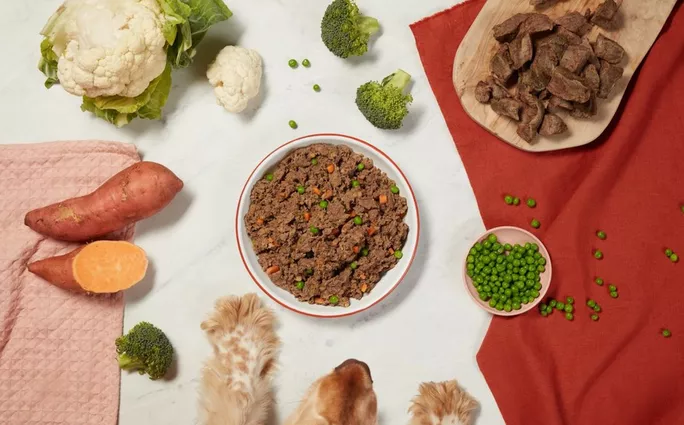The Effects of a Poor Diet in Dogs
- 29 Feb 2024
- 3m read

A poor diet in dogs can have detrimental consequences to their health, affecting not only their physical well-being but also their overall quality of life.
In this guide, we explore the causes, symptoms, and long-term effects of inadequate nutrition in dogs, as well as offer practical tips on how to ensure that your pooch receives the right nutrients for optimal health.
Causes of a Poor Diet in Dogs
Several factors can contribute to a poor diet in dogs, ranging from insufficient quality and quantity of food, to feeding inappropriate or unbalanced meals. Common causes include:
Low-quality commercial food
Some commercial dog foods may contain fillers, additives, preservatives and other artificial ingredients that offer little nutritional value and may even be harmful to your dog's health.
Overfeeding or underfeeding
Incorrect portion sizes or feeding frequencies can lead to obesity or malnutrition, both of which can have serious consequences for your dog's health.
Inadequate nutrient intake
Dogs require a balanced diet that includes proteins, carbohydrates, fats, vitamins, and minerals to thrive. A diet lacking in any of these essential nutrients can result in deficiencies and health problems.
Human food and table scraps
Feeding dogs human food or table scraps, especially those high in fat, sugar, or sodium, can disrupt their digestive system and lead to obesity, pancreatitis, or other health issues.
Symptoms of a Poor Diet in Dogs
Recognising the signs of a poor diet is essential for addressing nutritional deficiencies and preventing further health complications. Common symptoms include:
Rapid weight gain or loss
Dull or dry coat
Dry, itchy and flaky skin
Diarrhoea
Constipation
Vomiting
Excessive gas
Lethargy
Reluctance to exercise
How Does Poor Nutrition Affect Dogs Long Term?
The long-term effects of a poor diet in dogs can be severe and may impact various aspects of their health, including:
Nutritional deficiencies
Chronic malnutrition can lead to deficiencies in essential nutrients, impairing your dog's immune system, growth, and overall well-being.
Obesity
Overfeeding or feeding high-calorie, low-nutrient foods can result in obesity, which increases the risk of diabetes, joint problems, heart disease, and other obesity-related conditions.
Digestive disorders
Poor diet quality can disrupt the balance of beneficial bacteria in the gut, leading to digestive disorders such as inflammatory bowel disease (IBD), gastritis, or pancreatitis.
Dental problems
Feeding dogs a diet high in carbohydrates and sugars can contribute to dental issues such as plaque buildup, tartar accumulation, gum disease, and tooth decay.
How to Ensure that Your Dog is Getting the Right Nutrition
Ensuring that your dog receives the right nutrition starts with selecting a high-quality, balanced diet that meets their individual needs. Here are some tips to help you provide optimal nutrition for your furry friend:
Choose high-quality dog food
Opt for premium dog food made with complete, natural ingredients that is free from artificial additives, fillers, and by-products.
Follow feeding guidelines
Your vet and some dog food brands, such as Butternut Box, can help you to determine the appropriate portion sizes and feeding frequency based on your dog's age, weight, activity level, and health status. Alternatively, some dog food brands can help you to calculate exactly how much food your dog needs to thrive.
Avoid feeding table scraps
It’s important to resist the temptation to feed your dog human food or table scraps, as these can disrupt their digestive system and lead to nutritional imbalances.
Regular vet checkups
Schedule regular wellness exams with your vet to monitor your dog's health, address any nutritional concerns, and adjust their diet as needed.
By understanding the causes, symptoms, and long-term consequences of inadequate nutrition in dogs, we can take proactive steps to ensure that they receive the nourishment they need to thrive. It's never too late to make positive changes to their diet for a brighter and healthier future.

.webp)


